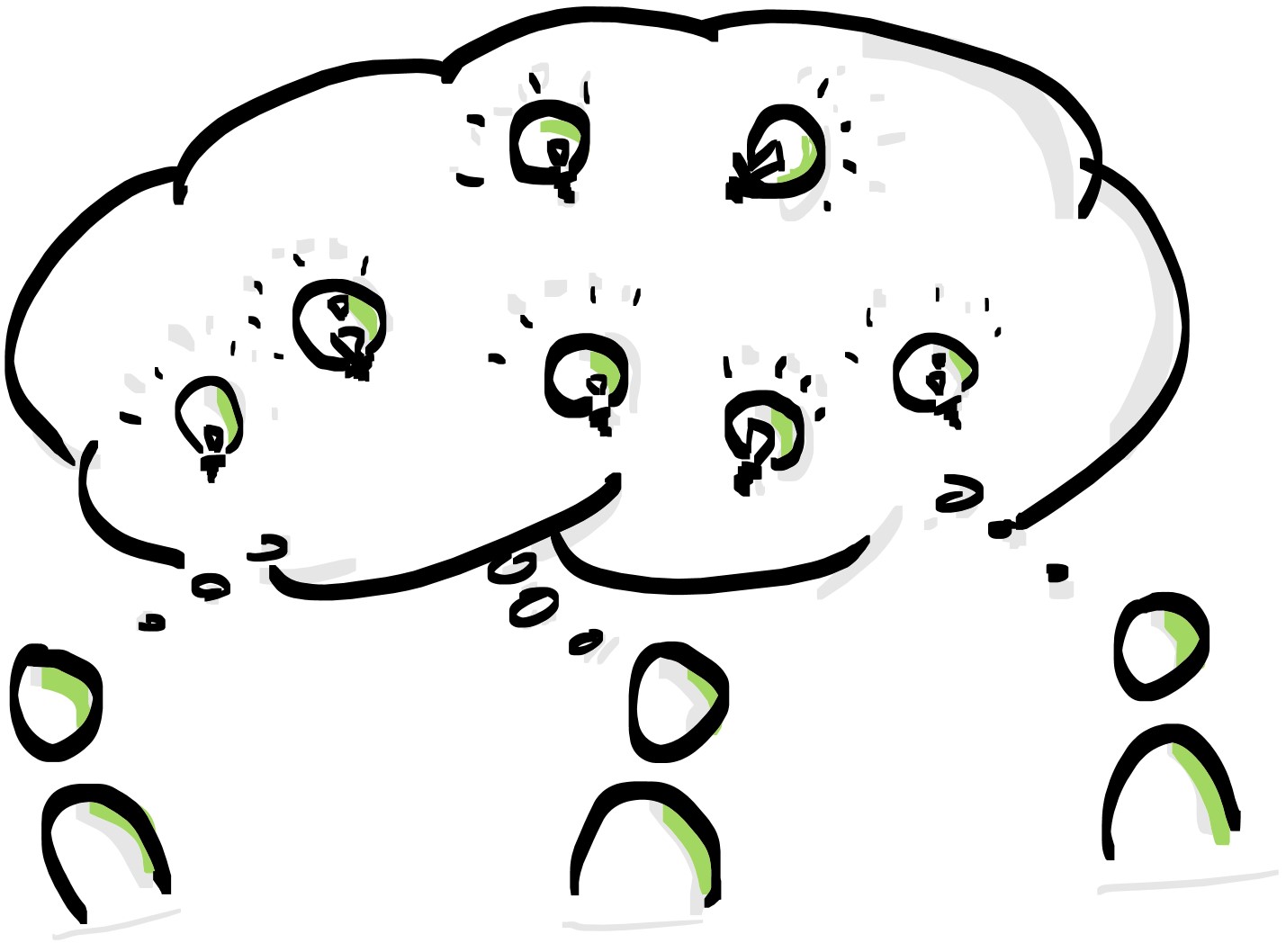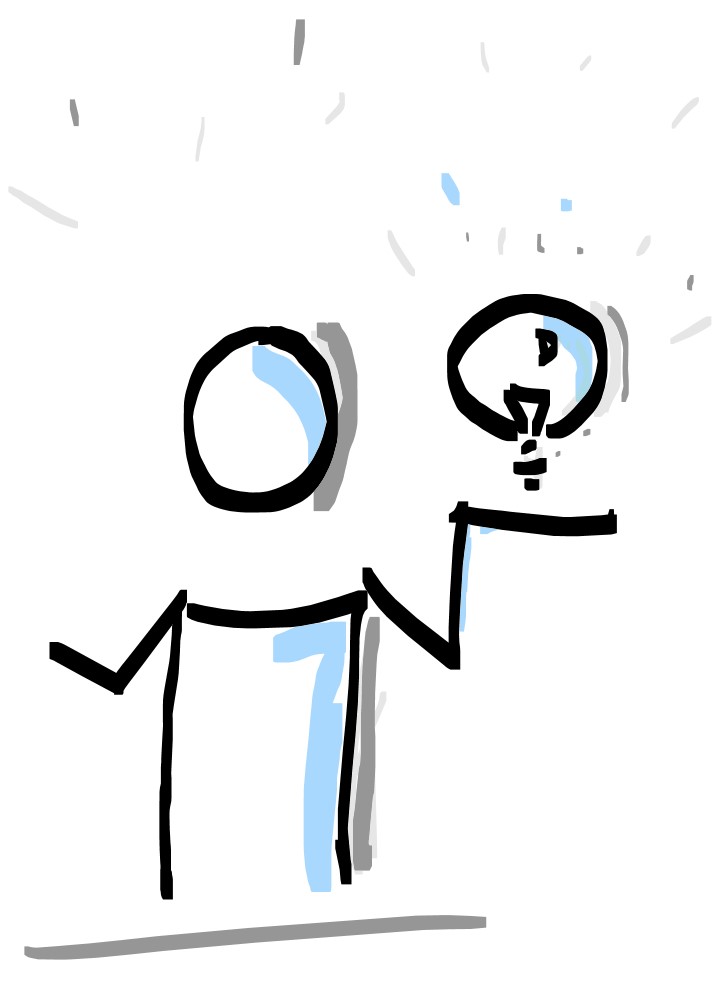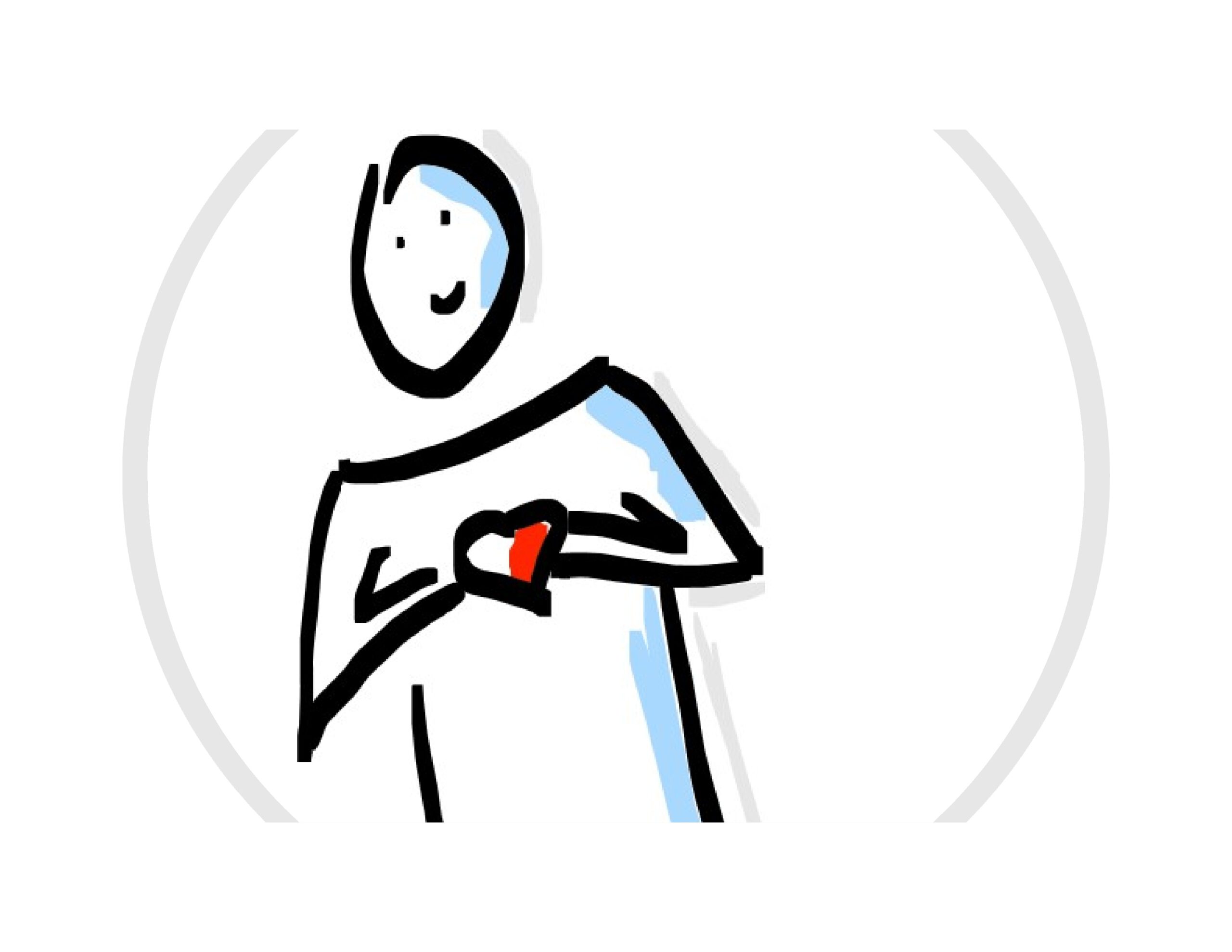It’s gonna be good, that’s what we can hope for. After all, it can only get better.
As humans, we pride ourselves
of our ability to think logically and to act rationally. There’s a good reason for that. Because this has undoubtedly helped us a great deal in the evolutionary competition.
It was made possible by the specific development of the human brain. With admirable top performance, the brain ensures that we cope with our increasingly complex everyday life relatively effortlessly. On a daily basis and literally non-stop.
The brain is an immensely important part of our body, it is THE central organ. Who would seriously argue with that?
However, all the more astonishing is,
that very many, perhaps even most people find it difficult or even impossible to accept that this so important part of our body can – and does – also become ill: within a year, more than one-third of adult women and a quarter of men suffer from a mental disorder that is so severe that it should be treated by a professional doctor.
So it’s a fact: diseases of the brain, any form of mental disturbances, in other words – and depression in particular – are just as widespread afflictions of wealth as, for example, heart and circulatory diseases, back pain or alcohol addiction.
Grit your teeth and get on with it!
Nevertheless, we take a particularly negative and dismissive attitude towards disorders of the brain and soul.
A majority considers it skipping work to stay away to call in sick because of mental illness. For ourselves and others, we explicitly and vehemently refuse to go to see the doctor for a mental ailment let alone take a sick leave.
It makes us uncomfortable, we tendn to feel embarrassed.
And we are afraid of social and professional disadvantages.
This is probably one of the reasons why it takes an average of almost eight years (!) for people with mental illnesses to seek medical treatment./1/
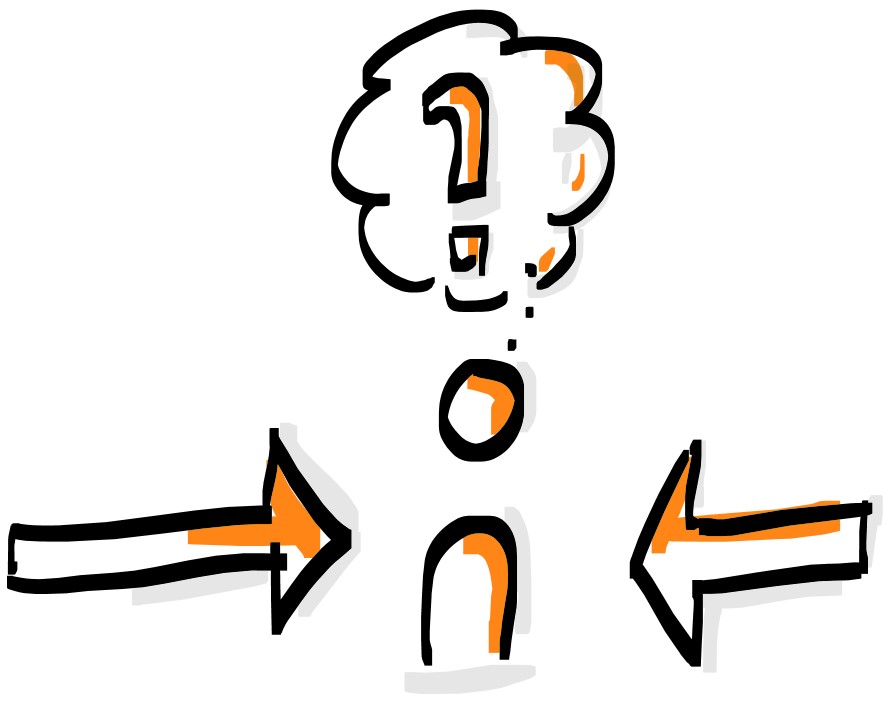
This is surprising, considering the great demands placed on the brain
and the importance we generally and quite rightly attribute to it for our (everyday) life and our culture. It is also surprising because such an attitude and the associated behavior are very unreasonable for rational beings like us.
Because it has a very counterproductive effect on the whole. After all, psychological upsets impair the quality of life and performance in a dull and very negative way, at least in the medium term./2/
First and foremost, those affected suffer from it themselves,
of course. But at the same time, the general public suffers as well:
Diagnosed mental disorders cause average (!) absences of 30 to 40 days, which are then covered and compensated for by others.
Added to this are the declining performance level and the downtimes prior to diagnosis, both of which, of course, cannot be recorded statistically. Depression is contagious – not only in terms of its consequences but also in its development!
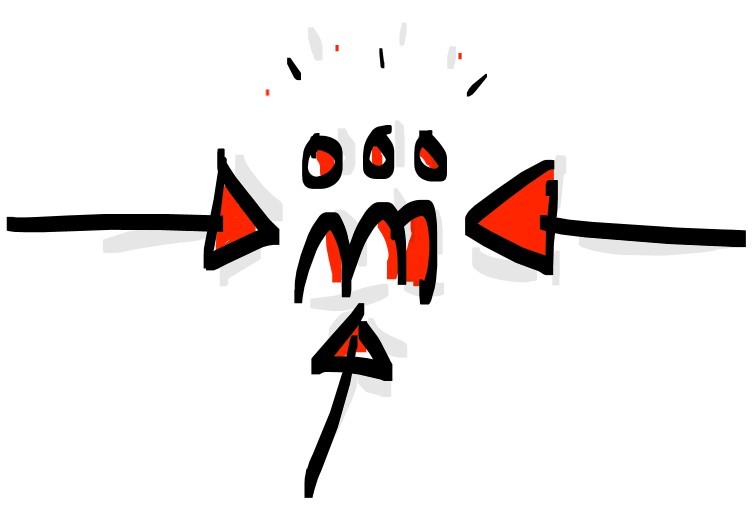
What’s the point?
Another aspect is worth highlighting: More often than we realize or want to see, psychological upsets also end fatally. Especially, of course, if they remain unrecognized, ignored or untreated.
This is especially tragic because treated depression has an almost one hundred percent chance of being recovered.
The existential and particularly hard-feeling dimension
stems from the fact that the core of mental illness is, in most cases, a deep crisis of meaning. Suddenly (or at least so it seems), the question arises loudly and vehemently: “What’s the point of it all? What’s it all about?”
These are, of course, profound questions that go to the heart of the matter and which clearly illustrate the perceived fatefulness of the illnesses./3/

Yet where does such a sudden question of meaning emerge from?
In our overflowing world of prosperity, don’t we have everything we need?
From a neurological (and philosophical) point of view, it is a completely normal process. Because the question of meaning is THE question of all questions for us.
Also, of course, for our brain. It incessantly deals with the question of and the search for meaning: What is the essence of every single bodily signal and sensory impression? What does it represent? What follows from it? What is to be done, what is to be omitted?
Survival in the community
But if we can be happy without wishes, what are we lacking? What is it that afflicts so many of us?
The answer to this question can be found in the evolutionary development of man. The real decisive advantage for us was not primarily our ability to reason, i.e. to think logically or to translate thoughts into language.
Rather, it was the ability to assess the significance of our actions, if you will: to answer the question of meaning.
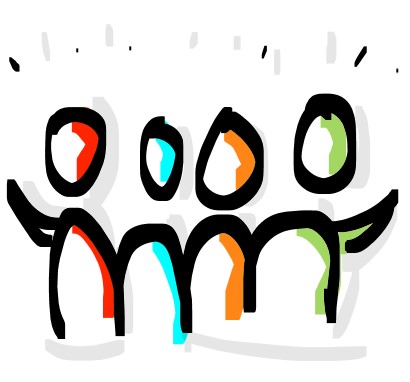
Apparently, humans recognized early on
that the survival of the individual depends crucially on the group. And so humans developed the ability for coordinated cooperative, social action and, especially important, for compassion faster and more distinctly than other animals – represented in the brain, among other things, by the mirror neurons.
The human strategy for success, and thus also for the human brain for survival, success and satisfaction, has always been compassionate collective action.
And not individual superiority, egoism or solitary behavior, as some interpretations of the “Survival of the Fittest” often misinterpret.
The Fittest was and is the one who made the community useful for himself and, because “diplomacy” or “give and take” required it, thus necessarily also benefited the community.
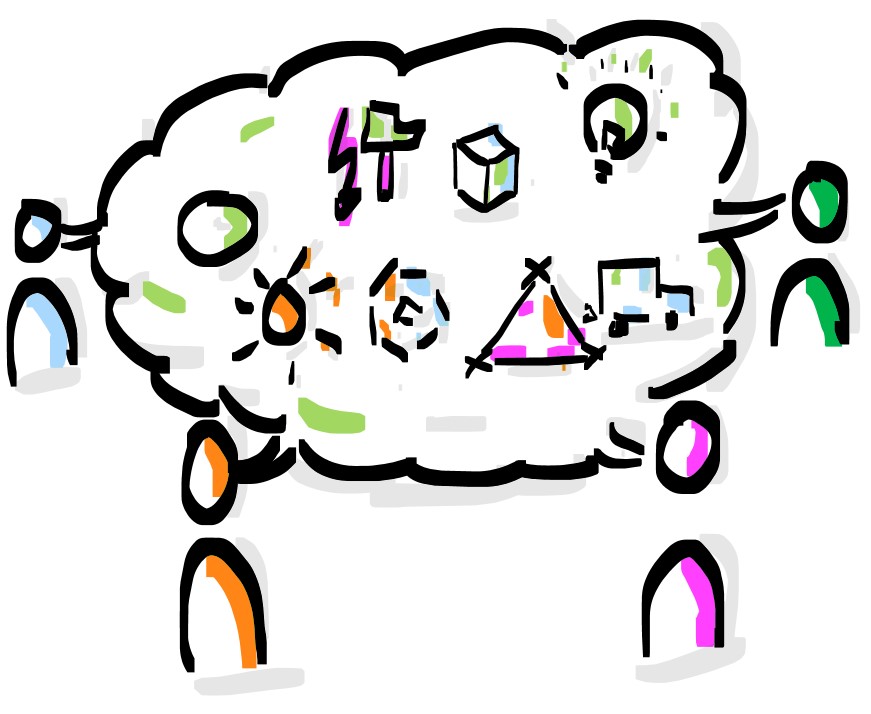
This is where it comes full circle.
If only for biological reasons, the answers in the search for meaning and significance for people and their brains are: common good and belonging.
So what does this mean
in light of mental health problems having reached epidemic dimensions – after all, they are the second most common reason for sick leave and early retirement?
At any rate, the millions of people affected indicate that a very great many of us have lost meaning in our personal and professional environments, probably because we miss social values.
However, what is certain is that this is a massive systemic, societal problem that we will have to solve collectively by answering these questions: How do we want to live as a society? What do we want to achieve together? How do we want to shape society, living together and working together in the future? What role and freedom does each individual have in this?
We can confidently hope
that we will get to work on it. We can’t help it. Humans are programmed and specialized for these questions. To be more precise: human brains. And certainly our hearts as well.
In this spirit: All the best! We can hope for that. After all, things can only get better.
Anmerkungen
/1/ Bandelow, Borwin: Das Angstbuch, Reinbek bei Hamburg: 2013.
/2/ World Health Organization: I Had A Black Dog, His Name Was Depression. Youtube-Video: https://www.youtube.com/watch?v=XiCrniLQGYc
/3/ Darüber können sich sich nur jene amüsieren, die noch nicht in einer solchen Krise gesteckt sind, oder jene, die das nicht zugeben können oder möchten. Das allein deutet die soziale Reichweite der Krankheit an: Aufgrund ihrer Tabuisierung haben psychische Störungen im Vergleich zu anderen körperlichen Gebrechen eine ganz andere, viel größere soziale Relevanz und Auswirkung auf das persönliche private und berufliche Umfeld des Betroffenen, was die Tabuisierung noch mehr vorantreiben dürfte. Ein Teufelskreis.
Literaturhinweise & Links
- Webpräsenz der Anonymen Arbeitssüchtigen (AAS): www.arbeitssucht.de
- Bandelow, Borwin: Das Angstbuch
- Bauer, Joachim: Arbeit. Warum unser Glück von ihr abhängt und wie sie uns krank macht.
- Bauer, Joachim: Warum ich fühle, was du fühlst.
- Bucej, Johannes B.: Seelenruhe. Philosophisch zur inneren Mitte finden.
- Camus, Albert: Die Pest.
- Webpräsenz des “Deutsches Bündnisses gegen Depression”: www.buendnis-depression.de
- Webpräsenz der “Deutschen Depressionshilfe”: www.deutsche-depressionshilfe.de
- Felber, Christian: Die Gemeinwohl-Ökonomie.
- Webpräsenz des “Forums Gute Führung”: www.forum-gute-fuehrung.de
- Webpräsenz der “Gemeinwohl-Ökonomie”: www.ecogood.org
- Giger-Bütler, Josef: “Sie haben es doch gut gemeint”. Depression und Familie.
- Gigerenzer, Gerd: Bauchentscheidungen. Die Intelligenz des Unbewussten und die Macht der Intuition.
- Gürkov, Claudia; Hinder, Anne: Suizide in Bayern. Wenn Menschen keinen Ausweg mehr sehen. BR5 – Beitrag vom 22.1.2015
- Hammer, Mirji: Die geheime Logik der Depression. Wie depressive Menschen denken. Artikel auf Stern.de
- Hüther, Gerald: Biologie der Angst. Wie aus Streß Gefühle werden.
- Hüther, Gerald: Die Evolution der Liebe. Was Darwin bereits ahnte und die Darwinisten nicht wahrhaben wollen.
- Hüther, Gerald: Die Macht der inneren Bilder.
- Ilardi, Stephen: Depression Is a Disease of Civilization. TedX Talk. 2013
- Webpräsenz der “Initiative Neue Qualität der Arbeit”: www.inqa.de
- Johner, Philipp: Freundschaft: Was es für ein erfülltes Leben braucht.
- Jumpertz, Sylvia: Gefangen im System. Führungskräfte über Führung. ManagerSeminare 1.2015, S. 70ff.
- Kahn, Oliver: Ich. Erfolg kommt von innen. München, 2008. S. 325 ff. – Beschreibung seines Burnouts.
- Kahneman, Daniel: Schnelles Denken, langsames Denken.
- Leibovici-Mühlberger, Martina: Die Burnout Lüge.
- Liessmann, Konrad Paul: Theorie der Unbildung: Die Irrtümer der Wissensgesellschaft.
- Lütz, Manfred: Irre – Wir behandeln die Falschen. Unser Problem sind die Normalen – Eine heitere Seelenkunde.
- Metzinger, Thomas: Der Ego-Tunnel: Eine neue Philosophie des Selbst: Von der Hirnforschung zur Bewusstseinsethik.
- Nowak, Martin A., Highfield, Roger: Kooperative Intelligenz. Das Erfolgsgeheimnis der Evolution.
- Parks, Tim: Die Kunst stillzusitzen.
- Rinpoche, Mingyur: Buddha und die Wissenschaft vom Glück.
- Schilling, Peter: Völlig losgelöst : Mein langer Weg zum Selbstwert – vom Burnout zurück ins Leben.
- Spitzer, Manfred: Lernen. Gehirnforschung und die Schule des Lebens.
- Die Sterne: Ich weigere mich aufzugeben (Die Original-Version von Superpunk auf Youtube)
- World Health Organization: I Had A Black Dog, His Name Was Depression. Youtube-Video: https://www.youtube.com/watch?v=XiCrniLQGYc
